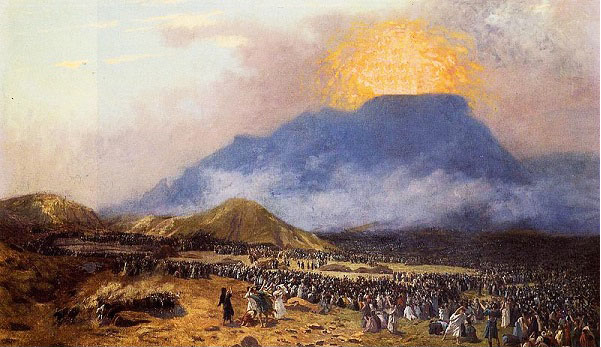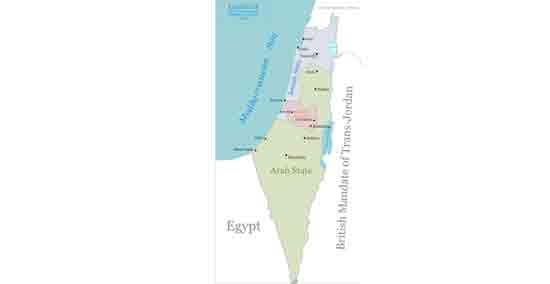The United Nations had approved the concept of the ‘Jewish homeland in Palestine’, but in spite of it, David Ben-Gurion was well-aware that it was to face numerous hurdles. Hence, for the last few months, he tried whatever he could to augment the manpower and the firepower of the Haganah. Importantly, Ben-Gurion put his efforts towards making the Haganah a regular and a disciplined army than let it remain just an armed, underground organization.
Accordingly, separate companies of the Haganah troops were raised and deployed to various areas. An arms depot and a human resources allocation-distribution centre were created right in Jerusalem itself. The Jewish troops who had fought alongside the British Army against the German forces were distributed among various Haganah troop companies to let other soldiers benefit from their experience. Code names were given to all, right from the weapons to the people to maintain secrecy. Hospitals were built to treat and care for injured soldiers and recruitment of trained medical staff was started. Categorization of the Jews in Palestine as kids, youngsters and middle-aged was undertaken, and relevant and useful military or other training accordingly imparted.
29 November 1947 was the day when the United Nations delivered ‘the historic decision’ of the partition of Palestine! The land was to be trifurcated into an ‘Arab state’, a ‘Jewish homeland’ and sensitive ‘Jerusalem and the adjoining areas’ which were to be under the UN. However, the port of Haifa was to a free entry point for the Jews from across the world who wished to immigrate to the land of Palestine.

About 1.2 million Arabs in Palestine and other Arabs nations were opposed to the partition of Palestine. They were not prepared to give their approval to any alternative other than declaring the entire land of Palestine as an ‘Arab nation’. They, therefore, rejected the decision and declared their intent to annihilate the Jewish nation totally.
The Jews then numbered 600 thousand and thus formed one-third of the entire population of Palestine. Left with no other alternative, they were in principle fine with the partition. However, they were unhappy with the area that was allotted to them by the United Nations as most of it was desert land. But more than anything else, they were unhappy with the exclusion of Jerusalem from the Jew nation, the city that was so close to their hearts.
However, on account of the partition, at least the concept of the ‘Jewish homeland in Palestine’ was to take a form and that too with the approval of the world superpowers. Hence, except the extremist organizations like the Irgun and the Lehi which opposed the partition and advocated that the entire land of Palestine belonged to the Jews, the ‘Jewish Agency’ and most of the Jews approved of the partition believing in the saying, ‘a bird in the hand is worth two in the bush’ and that the other considerations could be looked upon later.
However, immediately after the decision of partition, the Jews realized that the Arabs would not let their journey towards the Jew-nation to be a cakewalk.
Immediately after the decision, the underground Arab gangs attacked the Jewish settlements all over. Though the Grand Mufti of Jerusalem, Hajj Amin al-Husseini was barred from entering Palestine, he was instigating the Arabs for an armed uprising against the Jews from a foreign land.
On the day following the decision, a gang of some eight Arabs attacked two buses carrying the Jews, which killed seven Jews while injuring a few others. The Irgun and the Lehi retaliated by executing bomb blasts in the Arab quarters. A response to these was given by the supporters of al-Husseini who used car bombs and other means to target office of the ‘Palestine Post’ – a daily that opined in favour of Zionism. They also hit teeming markets in the Jewish settlements and offices of the Jewish Agency. The Irgunists replied to it by blowing away a train coming from Cairo by mining the rail-track thus killing some of the Arab passengers. Both the sides kept avenging each other’s acts which led the fire to spread across the land of Palestine.

Actually, the deadline for the British troops to leave the land of Palestine was quite far-off. But, of course, the responsibility of protection of all the people of Palestine was still with Britain. However, having absolutely no interests left in Palestine, the British, in fact, were in the midst of packing off from Palestine. They, therefore, turned a blind eye to all these happenings and intervened only when a situation turned dire.
Consequently, the entire responsibility for the protection of the Jews was on their own shoulders. However, thanks to the foresight of Ben-Gurion, the Haganah members were psychologically prepared for the battle and also were well-armed. They began to face and repel the armed Arab aggression successfully. The ensuing civil war spread within no time to all parts of the land of Palestine.
Attacking the settlements of the adversary became an everyday affair for both the camps. On the other hand, in Jerusalem, Haifa and other places where the Jews and the Arabs stayed together and not in separate settlements, the violence was more individual in nature.

As a next step, the supporters of al-Husseini conducted a blockade of the Jewish settlements in Jerusalem in order to completely cut-off the supplies of food and water. To breach the siege, the Jews tried to supply food and water using armed and mesh armoured vehicles. Though at its start, the attempts succeeded to an extent, with the sheer numbers of the supporters of al-Husseini and their fierce resistance, the number of Jews falling during these operations gradually started to increase thereby eating away into their numbers.
However, David Ben-Gurion was not the one to accept defeat. He took stock of the situation and reorganized the Haganah. Importantly, having observed the shortfall in the Jewish ranks, he introduced military conscription or compulsory enlistment of people in the military service for all the Jews, males as well as females.
It was under these circumstances that the year 1947 ended and the year 1948 began. However, the situation persisted without even a bit of improvement; on the contrary, it was worsening further. (To be continued…)


















